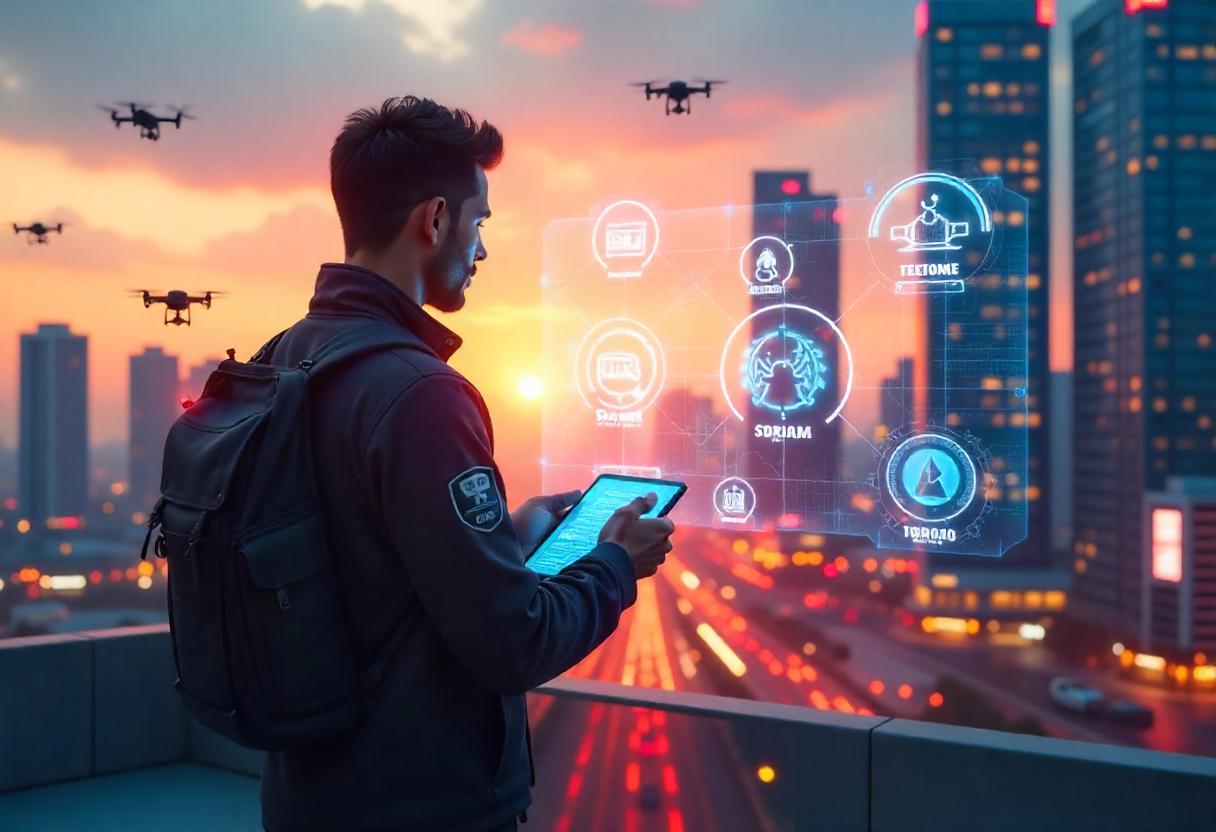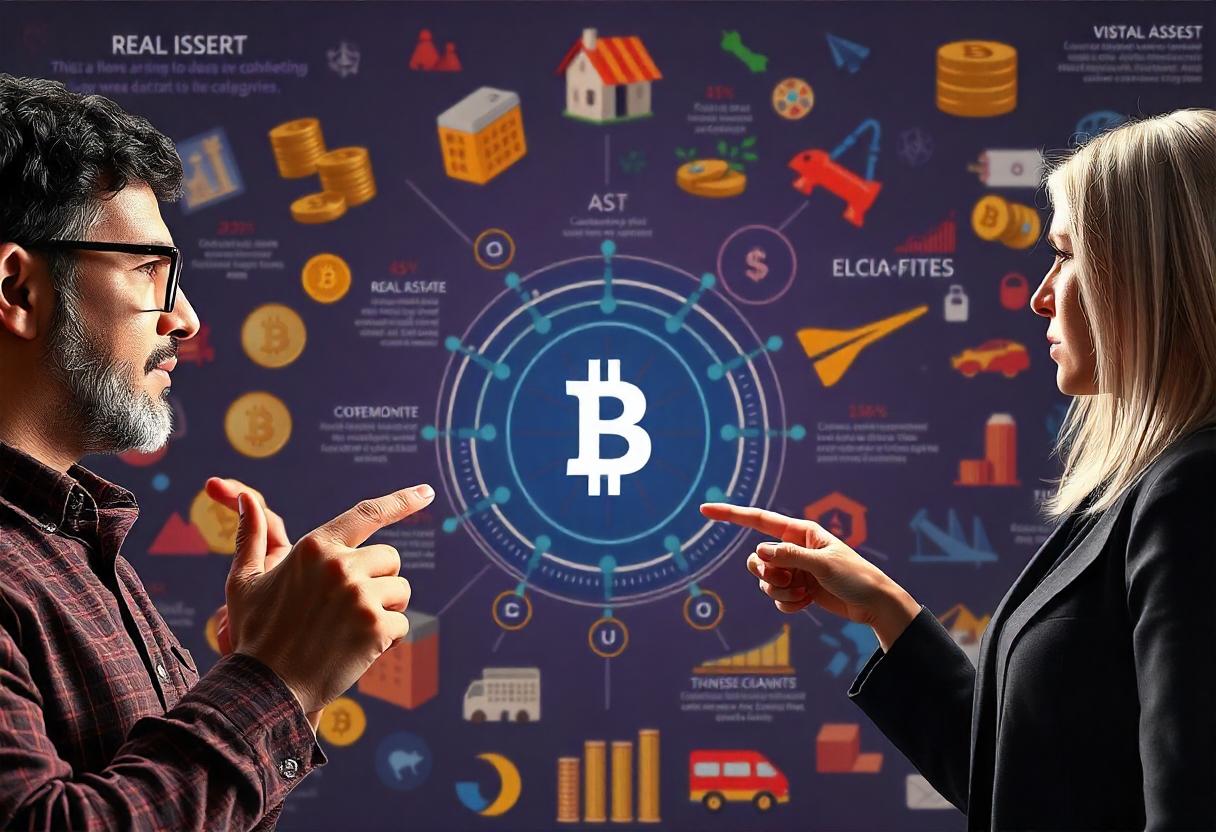Top 10 Markets for Real World Asset Tokenization
 Jennifer
Jennifer
As blockchain technology and decentralized finance (DeFi) grow in popularity, the concept of tokenizing real-world assets is transforming various industries. Real World Asset Tokenization (RWAT) allows investors to access fractional ownership in tangible assets, including real estate, commodities, and even art. This shift has opened up new opportunities for liquidity, transparency, and democratization of assets across markets.
What is Real World Asset Tokenization?
At its core, tokenization is the process of converting an asset’s ownership rights into a digital token on a blockchain. Real-world asset tokenization extends this concept to tangible assets, allowing these tokens to represent a stake in real estate, precious metals, intellectual property, or other physical items. Tokenizing assets enhances their accessibility and tradability, making it easier for investors to participate in markets previously limited to high net-worth individuals or institutions.

Benefits of Real World Asset Tokenization
Increased Liquidity
By breaking down assets into fractional tokens, asset owners can access a larger pool of buyers and sellers. This added liquidity is particularly beneficial in traditionally illiquid markets like real estate, where transactions can otherwise be lengthy and complex.
Lowered Transaction Costs
Tokenization reduces the need for intermediaries, which translates into cost savings. Blockchain transactions are generally faster and less expensive than traditional financial processes, saving investors money on fees.
Enhanced Accessibility
One of the most promising aspects of tokenization is the way it democratizes access to high-value assets. Fractional ownership enables a broader range of investors to access assets that would otherwise be financially out of reach.
Current Trends in Real World Asset Tokenization
As decentralized finance gains traction, more companies and financial institutions are exploring asset tokenization. This trend is supported by blockchain’s transparency, security, and ability to maintain trust within transactions. The growth of DeFi has also brought innovations such as smart contracts, which can facilitate and automate parts of the transaction process.

Top Markets for Real World Asset Tokenization
Let's explore the top 10 sectors where real-world asset tokenization is making the most significant impact:
1. Real Estate
Tokenizing real estate allows for fractional ownership in properties, making real estate investment more accessible. This can include residential, commercial, and industrial properties, which are broken into digital tokens that represent a specific value or share of the property. Major real estate firms and startups alike are diving into this space, offering a new approach to property investment.
2. Commodities (Gold, Oil, etc.)
Tokenization is rapidly gaining ground in commodities markets, with assets like gold, silver, and even oil seeing adoption as tokenized assets. These tokens allow investors to hold and trade commodities without handling the physical asset, providing an efficient, secure, and flexible investment route.
3. Private Equity and Venture Capital
Private equity has traditionally been accessible only to accredited investors. Through tokenization, however, this exclusive market is opening up. Tokens make it possible for investors to own a fraction of private companies or venture capital funds, enhancing accessibility and liquidity.
4. Art and Collectibles
Art tokenization has made it possible for investors to own shares in high-value artworks, allowing for fractional ownership. This has democratized art investment, providing smaller investors the opportunity to invest in blue-chip art without the need for millions of dollars upfront.
5. Intellectual Property Rights
The tokenization of intellectual property rights, including patents, copyrights, and trademarks, allows creators to monetize and manage their IP with greater flexibility. It also offers a way for investors to back innovative ideas and technologies while providing creators with additional revenue.
6. Debt Instruments and Bonds
Tokenizing debt instruments and bonds enables investors to access more flexible and liquid financial products. By tokenizing bonds, issuers can appeal to a broader audience, making it easier for smaller investors to engage in debt markets.
7. Renewable Energy Assets
Green energy assets, including solar and wind farms, are increasingly being tokenized, enabling investors to support sustainable projects while receiving a financial return. This opens up new funding opportunities for renewable energy initiatives, fostering growth in eco-friendly sectors.
8. Infrastructure Projects
Infrastructure tokenization includes public and private projects such as bridges, highways, and other large-scale construction projects. Tokenized infrastructure assets allow for greater participation in development projects and offer investors a stable, long-term investment option.
9. Gaming and Virtual Assets
Tokenization has had a huge impact on gaming, allowing players to own and trade in-game assets, which are now recognized as valuable commodities. In the gaming economy, these tokenized assets can be sold, traded, or used across various platforms.
10. Sports and Entertainment Rights
Tokenizing sports and entertainment rights allows fans to invest in the success of their favorite teams or artists. This can include fractional ownership of event revenues, merchandising, and more. Tokenized assets in this sector bring fans closer to their favorite players and performers, creating a unique investment and engagement opportunity.

Challenges in Real World Asset Tokenization
While tokenization offers numerous benefits, it also comes with its challenges. Regulatory uncertainty remains a significant hurdle, with different countries applying different standards to tokenized assets. Security concerns are also prevalent, as any vulnerabilities in blockchain platforms could pose risks to investors.
Future Outlook for Asset Tokenization
The future for asset tokenization looks promising. As technology and regulations continue to evolve, new sectors may become viable for tokenization, and existing markets will mature further. With increased acceptance and the development of legal frameworks, tokenization could soon become mainstream, with a wider range of tokenized asset offerings.
Conclusion
Real World Asset Tokenization is paving the way for a more accessible, inclusive, and efficient market across various industries. From real estate to sports rights, tokenization transforms asset ownership and investment, enabling fractional ownership and broadening access. As blockchain technology and regulatory clarity improve, the adoption of tokenized assets is likely to increase, providing exciting opportunities for investors worldwide.
FAQs
1. What is real-world asset tokenization?
Real-world asset tokenization converts physical assets into digital tokens on a blockchain, allowing for fractional ownership and easier trading.
2. Which industries benefit most from tokenization?
Industries like real estate, commodities, art, private equity, and intellectual property rights are among the top beneficiaries of asset tokenization.
3. Are there risks associated with asset tokenization?
Yes, risks include regulatory uncertainty and security vulnerabilities in blockchain technology, which can impact investor confidence.
4. How does tokenization affect asset liquidity?
Tokenization enhances asset liquidity by making it easier to buy, sell, or trade fractional shares of traditionally illiquid assets.
5. What is the future of asset tokenization?
As blockchain technology and regulatory frameworks advance, asset tokenization is expected to grow, expanding into new sectors and providing investors with more options.
Subscribe to my newsletter
Read articles from Jennifer directly inside your inbox. Subscribe to the newsletter, and don't miss out.
Written by

Jennifer
Jennifer
Get your own desired cryptocurrency exchange development with the help of expert developers.